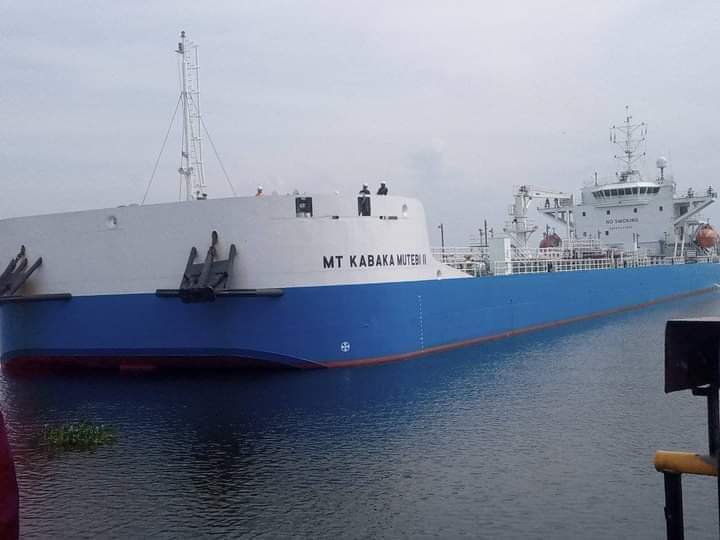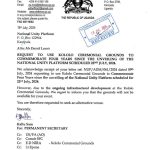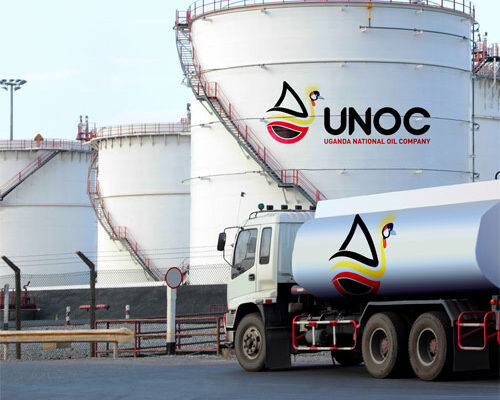New Fuel Transport Project to Cut Costs and Pollution
Lake Victoria Logistics (LVL) will officially start transporting oil from Kisumu, Kenya to Entebbe, Uganda, on July 18, 2024. This $100 million (about sh369 billion) project is expected to reduce transportation costs by 40% and decrease pollution by 90,000 tons of CO2 for each trip the barge makes.
Company and Project Background
Lake Victoria Logistics, located in Bukasa-Bwerenga, Kawuku, Wakiso District, is funded by three shareholders: Marathi Infra Services, Digimon Group, and Africa Finance Corporation. The company was founded in May 2015 as Mahathi Infra Uganda with a vision to revolutionize petroleum logistics for Uganda and other landlocked countries like Rwanda, Burundi, and DR Congo, which rely on Uganda for their oil supply.
President Yoweri Museveni laid the foundation stone for the project in 2018 and will be present today to witness the completion and official launch of the facility.
LVL’s operations began in July 2023. Its first vessel, MT Kabaka Mutebi II, has already made 55 trips, transporting 113 million liters of oil. The company is introducing a second vessel, MT Elgon, which will increase their capacity to 90 million liters per month, or one billion liters annually. LVL has registered over 44 oil marketing companies and aims to fully serve them.
LVL boasts 14 storage tanks with a collective capacity of 70 million liters, the largest fuel storage capacity in Uganda.
Infrastructure and Economic Impact
According to Uganda’s Ministry of Works and Transport, LVL has invested heavily in infrastructure to facilitate oil transport from Kisumu, which is connected by an oil pipeline from Mombasa. This new project will reduce road use for fuel transport from Kenya to Uganda, easing traffic congestion and cutting down on pollution.
Mahathi Infra (U) Ltd., part-owned by Capt. Mike Mukula, focuses solely on transporting oil from Kenya to Uganda without engaging in oil sales.
Currently, petroleum products such as diesel, gasoline, kerosene, and Jet A1 are transported by road from Kisumu/Eldoret in Kenya, which is expensive and contributes to traffic congestion and pollution.
Uganda National Oil Company’s Role
On July 7, 2024, Uganda requested the Kenyan government to lower the bond fees of $40 million (about sh147 billion) at an oil storage terminal used to ferry petroleum products from Mombasa to Kampala. This followed the start of direct importation of refined petroleum products by the Uganda National Oil Company (UNOC) through Mombasa port on July 3, 2024.
Energy Minister Ruth Nankabirwa stated that high bond fees would increase fuel pump prices in Uganda. She is negotiating with the Kenyan government to reduce these fees to prevent this increase.
UNOC received its first shipment of 78 million liters of petrol and 65,000 tons of diesel at Kipevu Oil Terminal II in Mombasa on July 3, 2024. This development followed months of anticipation and extensive agreements with Kenyan authorities.
Uganda is a net importer of petroleum products, with over 90% coming through Mombasa port in Kenya and the rest through Dar-es-Salaam port in Tanzania. Previously, Ugandan oil marketing companies imported products through affiliated Kenyan and Tanzanian companies.
The Petroleum Supply (Amendment) Act 2023 granted UNOC exclusive rights to import and supply all petroleum products into Uganda. This strategic move is expected to stabilize pump prices in the local market.
UNOC has contracted Vitol Bahrain, a bulk petroleum trader in the Middle East, to supply petroleum products to Mombasa. UNOC will then handle the sale and distribution to oil marketing companies in Uganda. Monthly shipments will meet Uganda’s fuel demand, currently at seven million liters daily, with an expected annual growth rate of 7%-9%.
Key Details
| Aspect | Details |
|---|---|
| Project Cost | $100 million (about sh369 billion) |
| Start Date | July 18, 2024 |
| Location | Bukasa-Bwerenga, Kawuku, Wakiso District, Uganda |
| Funders | Marathi Infra Services, Digimon Group, Africa Finance Corporation |
| Storage Capacity | 70 million liters (largest in Uganda) |
| Operational Since | July 2023 |
| First Vessel | MT Kabaka Mutebi II |
| Second Vessel | MT Elgon |
| Transport Capacity | 90 million liters per month, one billion liters annually |
| Environmental Impact | Reduces CO2 emissions by 90,000 tons per trip |
| Infrastructure Investment | Major investments in transport infrastructure from Kisumu to Entebbe |
| UNOC’s Role | Exclusive importer and supplier of petroleum products for Uganda |
| Current Fuel Demand | Seven million liters daily, with a 7%-9% annual growth rate |
| Strategic Partner | Vitol Bahrain |
| Key Objective | Reduce transportation costs and pollution, stabilize fuel prices |
Fuel Import Deal Settled Between Uganda and Kenya
In a related development in the country’s energy sector, the fuel import dispute involving the Uganda National Oil Company (UNOC) has been resolved. The Ugandan and Kenyan governments, along with Vitol Bahrain, the lead suppliers of fuel imports to UNOC reached an agreement on 10th July 2024.
During a meeting on last Wednesday, the parties decided to split the contentious consignment into two parts. This solution helps Vitol avoid a $40 million (about sh148 billion) bond fee that had been imposed on Uganda’s first diesel consignment.
Dr. Ruth Nankabirwa, Uganda’s Minister for Energy and Mineral Development, had previously opposed Kenya’s decision to impose the $40 million bond, arguing it would force UNOC to raise fuel prices, negating the planned reduction in pump prices for Ugandans. Dr. Nankabirwa had committed to engaging with her Kenyan counterpart to resolve the issue, and this agreement fulfills that promise.
Tony Otoa, UNOC’s Chief Corporate Affairs Officer, explained that the cargo split aligns with earlier agreements made during a fuel supply planning meeting held on May 22, 2024, in Nairobi. UNOC was allocated 65,000 metric tonnes of diesel (AGO) to be received into the Kenya Pipeline Company (KPC) system in Mombasa between July 2 and 4, 2024. However, 80,000 metric tonnes of diesel were delivered, causing concerns among industry players that the excess delivery would affect the transit diesel scheduled for Uganda through the government-to-government (G-2-G) arrangement.
In response to these concerns, on July 5, 2024, the Sinbad ship carrying 80,000 metric tonnes of diesel for Uganda was allowed to fully discharge at Mombasa Port. Of this, 28,000 metric tonnes were discharged to the Vitol Terminal, and the remaining 52,000 metric tonnes went to the KPC Terminals in Mombasa.
UNOC has communicated to Ugandan Oil Marketing Companies (OMCs) that the initial monthly demand of 80,000 metric tonnes will be split into two parts. For this month, the companies will receive 65,000 metric tonnes from UNOC and a portion from the G-2-G delivery to meet July’s demand. The remaining batch will be available in August 2024.
According to the Ministry of Energy, Uganda consumes about 6.5 million liters of fuel products, including petrol, diesel, Jet-A1, and kerosene.
Key Details
| Aspect | Details |
|---|---|
| Dispute Resolution Date | July 13, 2024 |
| Key Stakeholders | Uganda and Kenyan governments, Vitol Bahrain |
| Resolution | Split the contentious consignment into two parts |
| Bond Fee | Avoidance of $40 million (sh148 billion) bond fee |
| Minister’s Involvement | Dr. Ruth Nankabirwa |
| Cargo Allocation | 65,000 metric tonnes initially, with 80,000 metric tonnes delivered |
| Discharge Details | 28,000 metric tonnes to Vitol Terminal, 52,000 metric tonnes to KPC Terminals |
| Monthly Demand Management | 65,000 metric tonnes in July, remaining batch in August |
| Uganda’s Fuel Consumption | 6.5 million liters daily |
Makerere University and EACOP Join Forces to Build Uganda’s Oil Pipeline Workforce
Officials from Makerere University and East African Crude Oil Pipeline (EACOP) Ltd. have formalized their commitment to promote local employment, training, and the supply of goods and services through a newly signed Memorandum of Understanding (MoU).
Signed on July 16th at Makerere University, the MoU establishes a framework for collaboration between the two entities. It aims to support National Content Capacity Building initiatives and various Corporate Social Responsibility (CSR) projects. Vice Chancellor Prof. Barnabas Nawangwe represented Makerere University, while EACOP Managing Director Martin Tiffen signed on behalf of the pipeline company.
EACOP, tasked with developing and operating a pipeline system to transport crude oil from Kabaale in Uganda to Tanga Port in Tanzania, will involve several national and international contractors and suppliers. These entities will contribute specialized equipment and expertise to the pipeline construction.
In alignment with promoting national content, all tier one contractors and suppliers of EACOP have committed to initiatives aimed at enhancing local knowledge and capacity. This includes supporting recent graduates, technicians, instructors, professors, and lecturers from Ugandan tertiary and vocational training institutions.
Key initiatives under the MoU include internship and graduate training programs. These programs will provide graduates and current students from Makerere University and other institutions with practical training opportunities across various project scopes managed by EACOP’s contractors and suppliers. The duration and specific locations of these internships will vary depending on the contractors involved.
Training sessions under these programs will be conducted by EACOP’s contractors and suppliers. They will focus on sharing knowledge related to engineering disciplines and vocational skills relevant to the pipeline project.
Collaborative Efforts and Partnerships
To facilitate these initiatives, EACOP has already established partnerships through MoUs with entities like UPIK and professional bodies such as the Institute of Surveyors of Uganda. These partnerships aim to onboard graduate trainees with contractors and suppliers and facilitate internships within EACOP’s internal departments.
The East African Crude Oil Pipeline spans 1,443 kilometers, exporting Uganda’s crude oil to international markets via Tanzania’s Tanga Port. The infrastructure includes insulated and buried pipeline sections, pumping stations, pressure reduction facilities, and a marine export terminal.
Operated as a special purpose company, EACOP Ltd. is governed by a Shareholders Agreement involving major stakeholders like TotalEnergies, Uganda National Oil Company (UNOC), Tanzania Petroleum Development Corporation (TPDC), and CNOOC.




















